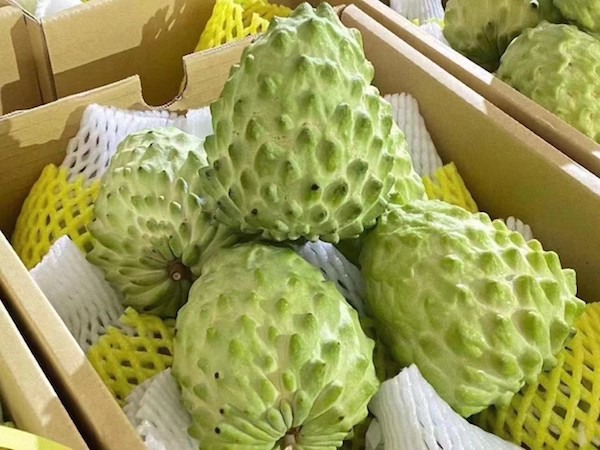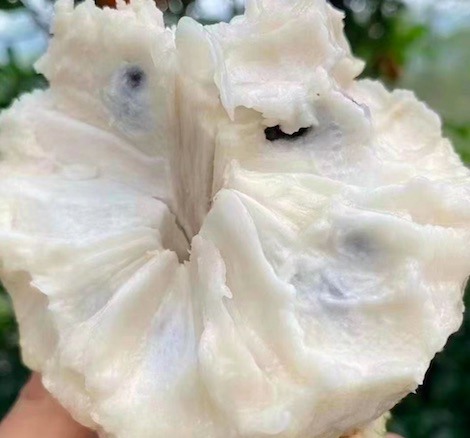The Taidong sugar apple from Taidong in Taiwan is a unique-looking fruit. Under regular weather conditions the sugar apple production season begins in December. Relevant data shows that Taidong county produces more than 80% of the sugar apples in Taiwan. Last year around 90%-95% of the sugar apples from Taidong were exported to the Chinese market, but this year the conditions are different.
"Looking at the data since the beginning of this season we can see that Chinese import of Taiwanese sugar apples has declined by around 20%. Furthermore, the price is almost 35% lower than last year. One of the reasons for this development is that the weather conditions were stable last season, there were barely any typhoons. That is why the sugar apple production volume expanded last year. Furthermore, the current market suffers from Covid-19 related obstacles to distribution. Additional measures slow down transport, which has an impact on the product quality of sugar apples in the Chinese market." This is according to Mr. Chen Weiwen of Guangdong Aimu Agricultural Development Co., Ltd.

Taiwanese sugar apples
The Taiwanese sugar apple sales season begins annually in late November. Last year the opening price was round 70 New Taiwan Dollar [2.50 USD] per 0.6 kg. That price quickly rose to 90 NTD [3.21 USD] per 0.6 kg in the period leading up to Chinese Spring Festival. In some places the price even reached 110 NTD [3.93 USD] per 0.6 kg. However, the price dropped to 60 NTD [2.14 USD] per 0.6 kg after the outbreak of Covid-19 last year, and in December the price reached a low point at 40 NTD [1.43 USD] per 0.6 kg.

Taiwanese sugar apples
Chinese Spring Festival [12 February, 2021] is almost upon us. That is the peak period of Chinese fruit import, including the import of Taiwanese sugar apples. This year, however, sales conditions have not been great.
According to Mr. Chen Weiwen: "It is not just that the supply volume of top-quality Taiwanese sugar apples in the Chinese market is limited as a result of Covid-19 related distribution problems, but many Taiwanese farmers become increasingly aware of the risks involved in fruit trade during this pandemic. They tend to focus more attention on the domestic market instead of the Chinese market. That is one of the reasons why the export volume declined."
For more information:
Mr. Chen Weiwen
Guangdong Aimu Agricultural Development Co., Ltd.
Tel.: +86 137 2579 9280
